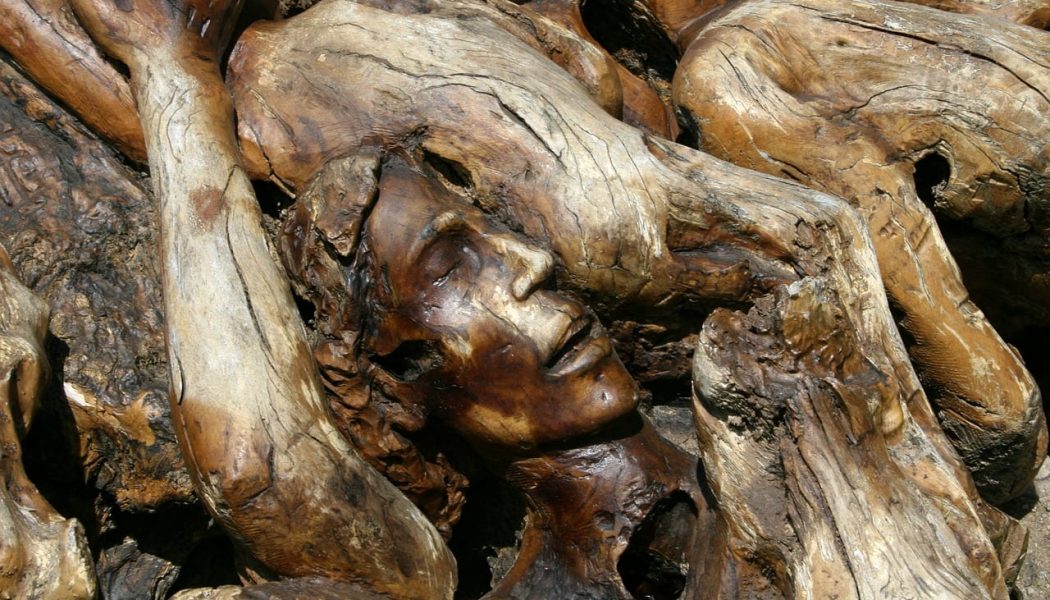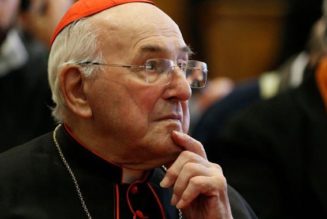
Hell is the final guarantee that what we do here and now really matters: That’s the message Paul Thigpen gives in the book Saints Who Saw Hell: And Other Catholic Witnesses to the Fate of the Damned.
“If Hell doesn’t exist, then all roads lead to the same destination, whether it’s Heaven, or annihilation, or something else. And if all roads lead to the same place, it ultimately makes no difference which road we take. On the other hand, if our choices will lead us ultimately to one of two utterly different destinies, then our choices have crucially different consequences,” he continues.
Reflecting on Hell, Thigpen emphasizes, deepens our appreciation of Heaven.
“The more horrible we understand Hell to be, the more deeply we fathom what God wants to save us from, the more grateful we are that he desires to save us,” he said.
Thigpen spoke to Kathryn Jean Lopez about his book, and why Hell matters.
Lopez: Do we have any certainties about who is in Hell? So often when people die we automatically talk in terms consoling to us that they are immediately in Heaven. On the other hand, I remember people popping champagne corks and smoking cigars when Osama bin Laden was killed, celebrating his entrance into Hell. But we really can never know another’s soul, can we?
Thigpen: Normally, no, we can’t. Many insist we can’t know for sure even that Judas Iscariot was damned, though I find it hard to give any other reasonable interpretation to Jesus’ words that Judas was a “son of perdition” (John 17:12). The Greek term translated here as “perdition” refers in most other New Testament contexts to final and eternal destruction — that is, damnation (e.g., Matthew 7:13; Revelation 17:8, 11; Philippians 1:28; 3:19; 2 Peter 3:7; 2 Thessalonians 2:3). Meanwhile, how could Jesus rightly say of Judas that it would have been better if he had never been born (Matthew 26:24) if Judas ultimately ended up in Heaven? With regard to the visions reported in this book, the accounts suggest that on occasion, God will in fact reveal through a private revelation the damnation of a particular soul. As just one example, the Annals of the Franciscan Missions, cited approvingly by St. Alphonsus Liguori, provides an account of the conversion of the seventeenth-century Franciscan missionary Blessed Richard of St. Ann. Richard reported the apparition of a damned soul who had been his companion in debauchery but had suddenly died right after both young men had visited a prostitute. God permitted the wretched soul to appear to Richard that same night to warn him to repent, lest he, too, be damned.
As another example, the book also includes accounts from the sixth-century pope St. Gregory the Great, now recognized as a Father and Doctor of the Church. He describes, without hesitation, several specific individuals known to his contemporaries whose damnation was revealed by God through visions. Some of those visions, he observes, were apparently authenticated by related contemporary events.
Nevertheless, such cases seem to be quite rare, and of course we’re not obliged to accept the authenticity of a private revelation, even claimed by a saint, as we would a biblical account. I think it safe to say that in this life, the eternal destiny of particular damned souls is nearly always hidden from us.
Do you have a favorite of these saints who saw Hell, and if so, for what reason?
My favorite, I think, is little St. Jacinta de Jesus Marto, one of the child visionaries of Fátima. In one of the most celebrated Marian apparitions of all time, Jesus’ mother showed the children a glimpse of Hell, then said to them: “Pray, pray very much, and make sacrifices for sinners, for many souls go to Hell, because there are none to sacrifice themselves and to pray for them.”
Young Jacinta took those words to heart. Her companion visionary Lucia dos Santos later recalled how the child would often fast for lunch and give her food to the sheep she cared for, as a humble sacrifice for the souls in danger of Hell. She would sometimes remain on her knees for hours, praying the prayer Mary had asked them to pray for sinners to repent and be spared damnation, and urging the other children to do the same.
Would that we all prayed as fervently about this matter as she did!
Why would one seek to avoid all occasions of sin? How is it even possible?
Consider this analogy: Why would one seek to avoid all occasions for traffic accidents by driving carefully, even if it may not be possible to avoid all such accidents? We do that because we want to avoid the damage and injury that would come from a collision. And even if we should still collide with another vehicle someday because of our carelessness, that wouldn’t stop us from trying to avoid accidents in the future.
Some of these visions you include of Hell are so graphic, so troubling, so horrific. Why visit then? Why visit Hell, in a sense?
God allows these visions as an act of mercy. Though they are often horrific, they reveal a truth that both charity and justice demand be revealed. It’s something akin to the controversial practice of some pro-life advocates who publicly display gruesome photos of aborted babies. In doing so, they show “pro-choice” advocates what exactly is the despicable horror that is being chosen.
When Jesus preached about Hell (and he did so multiple times), his language, too, was terrifying: unquenchable fire, gnawing worms that never die, weeping and gnashing of teeth. If the merciful Redeemer didn’t spare graphic language in warning of Hell, neither should we.
There is a lot of horror as entertainment in the culture. And, of course, there’s Halloween, which can be Snow White costumes or real gruesome images. Should there be a specifically Christian approach to Halloween?
My family has always preferred to observe, not a playfully frightening Halloween, but instead a spiritually merry All Saints’ Eve, from which the observance gets its name (“All Hallows’ Evening”). We encourage families to host All Saints parties with plenty of treats, with children dressed in costume as their favorite saints. That allows them to enjoy the fun and innocent customs of the season without flirting with the gruesome and macabre themes of the day as typically emphasized in our culture. And it places the focus on Hell’s glorious alternative, Heaven.
Pope Francis talks a lot about mercy, but he also talks about the Devil. What do you make of that?
Well, Jesus Himself talked a lot about mercy, but He also talked about the Devil. Our Lord was demonstrating His great mercy when He performed exorcisms, casting out the Devil and his cohorts so that their victims could be set free from darkness.
Crux is dedicated to smart, wired and independent reporting on the Vatican and worldwide Catholic Church. That kind of reporting doesn’t come cheap, and we need your support. You can help Crux by giving a small amount monthly, or with a onetime gift. Please remember, Crux is a for-profit organization, so contributions are not tax-deductible.








